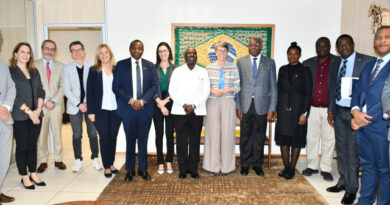Experts Call for Big Tobacco and Big Polluters to Be Barred from Treaty Negotiations
As intergovernmental treaty negotiations on climate (UNFCCC) and tobacco control (WHO FCTC) get underway, experts are calling on governments to hold abusive corporations accountable and prevent their interference in critical policy-making.
Advocates warn that both Big Tobacco and major fossil fuel companies are using similar tactics to influence treaty outcomes, putting public health and the climate at risk.
The WHO Framework Convention on Tobacco Control (FCTC), the first legally binding global tobacco treaty ratified by 183 countries, is marking 20 years since coming into force. Experts highlighted the importance of Articles 5.3 and 19 of the treaty.
Article 5.3 requires governments to prevent tobacco industry interference in public policy, while Article 19 allows states to pursue civil, criminal, administrative, or other forms of liability against the industry.
Professor Judith Mackay, WHO Senior Policy Advisor, stressed that “governments must ensure that the tobacco industry is excluded from policy formulation. They are told what to do, but not allowed to dictate the rules.”
Daniel Dorado Torres, lawyer and Tobacco Campaign Director at Corporate Accountability, noted that tools such as the FCTC Article 19 Civil Liability Toolkit help countries hold the tobacco industry to account, citing successes in Uruguay and Nepal where legal challenges were overcome to enforce strict health warnings and packaging regulations.
Experts emphasised that similar corporate tactics are used by Big Polluters in climate negotiations. Akinbode Matthew Oluwafemi, Executive Director of CAPPA, Nigeria, said: “Whether it’s Big Tobacco or Big Oil, these industries seek to hijack political and legislative processes to avoid liability. Governments often find industry representatives present at UNFCCC and FCTC meetings, either directly or by proxy.”
Rachel Rose Jackson, Director of Climate Research & Policy at Corporate Accountability (US) and part of the Kick Big Polluters Out Coalition, explained that the challenges are closely linked:
“The same abusive industries block critical action on both climate and health. Solutions on accountability and liability are also similar. Unlike FCTC, UNFCCC has no equivalent to Articles 5.3 or 19, leaving climate negotiations vulnerable to corporate capture.”
In response, over 450 organisations representing millions of people have formed the Kick Big Polluters Out Coalition, calling for robust measures to prevent corporate interference in climate treaties and ensure accountability.
For the first time, non-governmental participants in climate negotiations are now required to disclose funding sources and confirm alignment with UNFCCC objectives—a move hailed as a significant step towards addressing Big Polluters’ influence.
Experts emphasise that implementing measures inspired by FCTC Articles 5.3 and 19 could strengthen climate policy, protect public health, and advance a more equitable, sustainable global transition.



